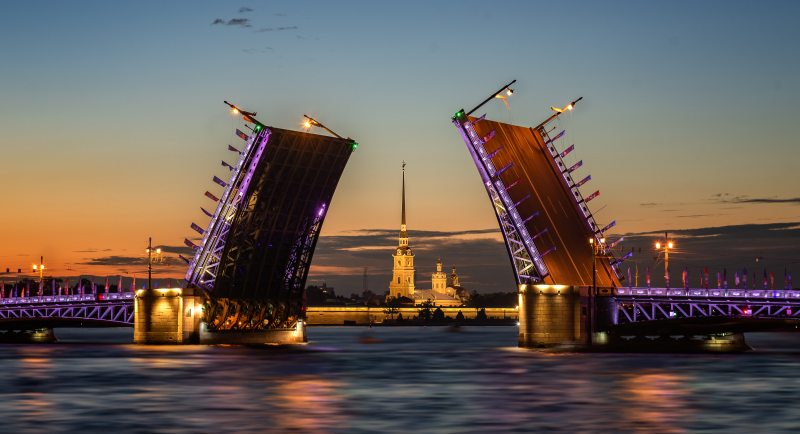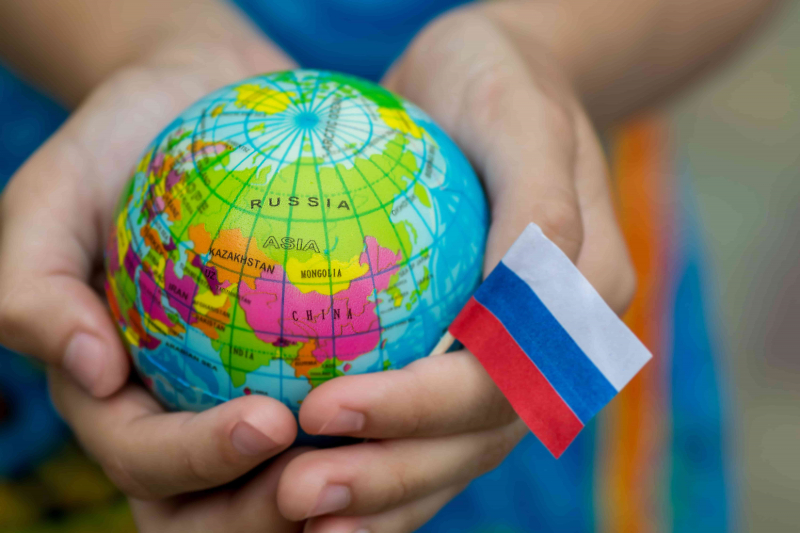How does everyone survive the cold and lack of sun?
Russia is known for being cold. It’s true. The winters are long, and they can get very cold. However, Russia is a large country, and some parts of the country get a lot of sun, though there’s a difference between sunshine and warmth. The sunnier it gets in the winter, the colder it is.
Russians have organized their entire lifestyle around the seasons, and summer is exclusively reserved for rest and leisure (or at least a change of scenery). It can get really hot in some places. Everyone makes a concerted effort to travel. Depending on their financial situation, some head south to the Black Sea and spend a full month there, some travel overseas to warmer countries, some visit their native home town or village, and many spend their summer on the dacha. Kids go to summer camps. It’s like everyone’s trying to soak up all the sun they can.
-39 degrees in Siberia. Photo courtesy of the author.
What’s the food like?
Russian food is simple and delicious. There are a few key ingredients that are found in pretty much every dish. Every traditional Russian kitchen is stocked year-round with potatoes, onions, cabbage, carrots, beets, peas, pickles, mayonnaise, buckwheat, flour, milk, smetana (sour cream), eggs, kefir, tvorog (quark), varenye (jam), and butter. With those staple ingredients you can make a lot of delicious traditional Russian meals and desserts. And when you come home late at night and don’t know what to eat, you just fry up a few eggs, or boil some pelmeni and you have yourself a dinner. Also add mayonnaise or smetana to anything and you’re good. Like any cuisine, it’s most delicious when you eat it freshly made in a native’s home. I’ve written about my favorite Russian foods here. Maybe there’s something you might like to try?
Is everything available in supermarkets?
In a big city like St. Petersburg, almost everything is available. Of course, when it comes to making my favorite Thai curry, or if I’m dying to make some quinoa or taste some delicious kalamata olives, or maybe I’m craving an Aussie sausage roll, I’m not going to find it in the grocery store in my building. But there are lots of large European supermarkets around the city with a reasonable variety of goods, and special boutique food stores where I can eventually locate my favorite tastes – but they’ll probably be on the more expensive side. Fun fruits and vegetables are only available in the summer. Again, you can find them somewhere in the winter at a higher cost, but they won’t taste so good. Sometimes it’s hard to find exact foods that I grew up with, so I bring my Vegemite and Tim Tams with me when I travel home, and I’m sure others do the same when they go to visit their home countries.
Is it safe there?
In terms of general day to day living, I am surprised as to how much more safe I feel walking around St. Petersburg alone late at night than when I was in Australia. It’s a big city and there are a lot of people. There are many 24 hour stores, and malls are open till 10pm. The metro closes after midnight and other public transport runs frequently before midnight, too. And there are always people everywhere. It helps to live in a crowded area, but I come home alone around 11pm by public transport, quite frequently and always surrounded by people of all ages.

Do many people speak English?
Yes and no. The majority of young people can read and understand spoken English. The traditional method of teaching English in school churned out a lot of students with perfect reading and listening skills, but subpar writing and speaking skills, mostly due to a lack of practice. So you’ll find people will understand what you’re saying and may just respond to you in Russian if they haven’t had much practice.
How do you read the letters that look like pictures and symbols?
The Russian alphabet is awesome. As I've already said in my article about learning Russian, the alphabet is actually the easiest part of the process. Everyone should learn cyrillic, I think. Majority of Russians can read latin characters, the original keyboard on their computers is in latin, the Internet is in Latin. Everyone knows “www”, but the rest of the world needs to get on board with cyrillic. It’s got way more letters than English, it’s got similar letters to English and Greek, and when you memorize things like “upside down h is “ch””, then you’re gold!
What does the media say about the West?
Honestly, I don’t read the Russian news unless I can’t find information about something in English. But from my interaction with Russian people from all walks of life, in many different cities, I rarely observe a disdain for Western people stemming from “anti-Western media”. But the vast majority of people are extremely curious about the West. Those who are able, love to travel to Europe, as it’s close and attainable. Many dream, and sometimes make it, to the US. Immigration is common to these countries, and traces of the West are all over, with brands and stores and food chains covering every sidewalk.
Photo courtesy of the author
How do people react to “foreigners” there? Do you stand out?
Russia is a large country and has many different nationalities. However, that being said, I do definitely stand out. As much as I try to fit in, I usually have “foreigner” stamped on my forehead. Sometimes it's easy to tell a foreigner by their clothes or a lost look, and sometimes they blend right in. Every now and again people ask me for directions on the street, and that’s encouraging.
Most people are shy at first about becoming friends, because they’re either afraid you can’t be trusted or you’ll leave and they’ll lose a friend – but when I first meet someone, I can see from the look in their face that deep down inside they’re dying to ask questions like “What’s Australia like? Tell me about your life there? How is it different to Russia?” Sometimes they’re very polite and wait till a second meeting before they pour out their questions. And sometimes instead of even introducing themselves the first question a stranger might ask you is “Where are you from?” In those cases I usually say… “St. Petersburg”
How do Russians see the world? What is the usual dream young people aspire to in Russia?
Russians are curious about the world. Children and teenagers are unlikely to travel outside the country, unless they’re well off, and so through films and books, they become increasingly more curious about what lies beyond. Most young people are looking for a financially stable and secure future, just like in the rest of the world. Some seek that stability elsewhere, in other countries, while others look for it in their own hometowns.




